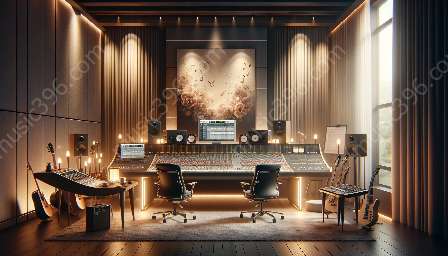In the music industry, protecting intellectual property is crucial for recording artists. When entering into studio contracts, artists must be well-versed in the legal aspects of their work to ensure their rights are safeguarded. This topic cluster explores the various ways recording artists can protect their intellectual property in studio contracts, providing valuable insights into the music business and recording studio agreement agreements.
Understanding Intellectual Property in Music
Before delving into studio contracts, it's important for recording artists to understand what constitutes intellectual property in the music industry. Intellectual property encompasses the creations of the mind, such as musical compositions, lyrics, recordings, and performance rights. By recognizing the value of their intellectual property, recording artists can take proactive measures to protect their work and commercial interests.
Studio Contract Agreements
When recording artists collaborate with studios to produce their music, studio contract agreements are essential. These contracts outline the terms and conditions of the recording process, including the rights and ownership of the intellectual property created during the studio sessions. It's imperative for recording artists to carefully review and negotiate studio contracts to ensure their intellectual property rights are adequately protected.
Protecting Rights to Musical Compositions
One of the key aspects of intellectual property for recording artists is the protection of their musical compositions. Studio contracts should clearly define the ownership and usage rights of the compositions created during the recording sessions. Recording artists can negotiate for ownership of the musical compositions or secure licensing agreements that specify how the compositions can be used by the studio and third parties.
Safeguarding Recording Rights
Recording artists must also safeguard their rights to the recordings made in the studio. This involves specifying the ownership and control of the master recordings in the studio contracts. Artists should ensure that they retain the rights to their recordings and have the final say in how they are used and distributed, whether for commercial release, licensing, or other purposes.
Securing Performance Rights
Performance rights are another critical aspect of intellectual property for recording artists. Studio contracts should address how performance rights are managed, particularly with regards to live performances, sync licenses, and digital use. Recording artists should negotiate for the retention of their performance rights or establish clear terms for revenue sharing when their music is publicly performed.
Enforcing Non-Disclosure and Confidentiality Clauses
To protect their intellectual property from unauthorized disclosure or misuse, recording artists can include non-disclosure and confidentiality clauses in their studio contracts. These clauses restrict the dissemination of sensitive information about the creative process, upcoming projects, and unreleased music, thereby safeguarding the artists' proprietary rights and commercial strategies.
Seeking Legal Counsel and Reviewing Contract Termination Provisions
Recording artists should seek the guidance of legal professionals specializing in music business law to review and negotiate their studio contracts. Legal counsel can help artists understand the implications of the contractual terms, identify potential risks, and ensure that their intellectual property rights are adequately protected. Additionally, artists should pay close attention to contract termination provisions, ensuring they have the ability to reclaim their intellectual property if the studio contract is terminated.
Conclusion
As recording artists navigate the complex landscape of studio contracts and intellectual property protection, a thorough understanding of their rights and proactive negotiation are essential. By taking proactive measures to safeguard their intellectual property, recording artists can cultivate a successful career in the music business while maintaining control over their creative works and commercial interests.









































